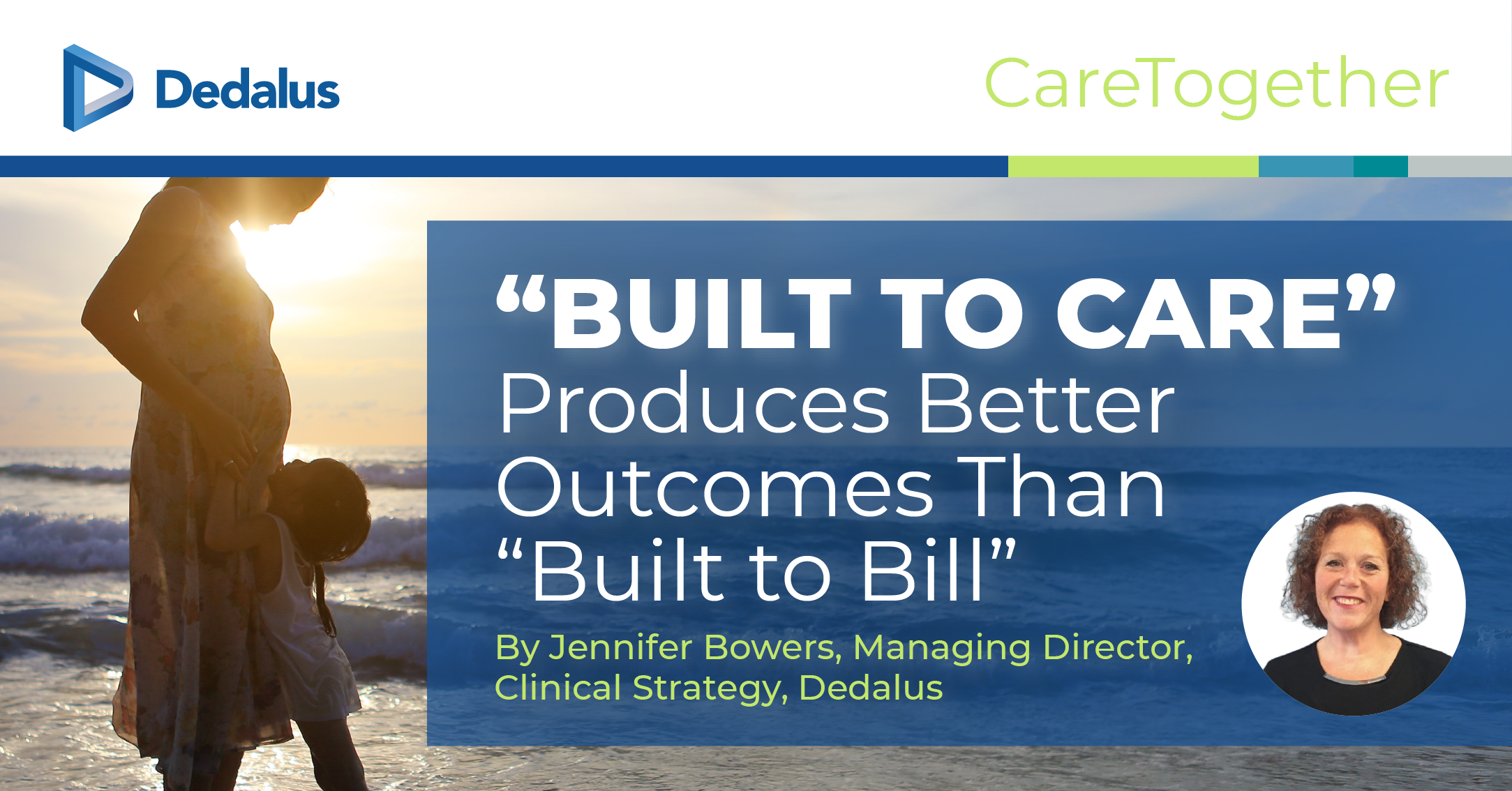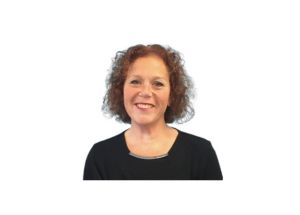Why “Built to Care” Produces Better Outcomes than “Built to Bill”
By Jennifer Bowers, BSN

The U.S. healthcare system is plagued by a profound irony. On the one hand, clinicians go to work day-after-day, night-after-night, to care for sick and injured people. Yet they’re delivering care within the constraints of administrative systems that are optimized for billing. That dual reality often results in a consumer experience that feels like the business side is being prioritized over the healthcare side.
Care is the cornerstone of Dedalus. Unlike the current U.S. healthcare model, Dedalus accounts for life’s hiccups and hardships. Dedalus’ mission is to shift away from a care model based on “episodes of care” toward a true continuum-of-care paradigm.
The Problem
Zeroing in on someone’s challenges and ailments is not the best way to care for a person in need. Instead, we like to look at the whole person and their overall picture. Right now, the public is facing some problems; America’s ‘built-to-bill’ health system undermines the work of caregivers, causing more and more cases of “caregiver burnout” leading to lower quality care for those who need it.
Unfortunately, we see the consequences of our current system on real people. One of the families we support is centered around a young boy named JJ. JJ faces a revolving door of struggles, which can be overwhelming for one family or parent to take care of – and millions of families are facing the same dilemma. The traditional healthcare model can only see JJ, his diagnoses, and the bills for his visits and medicine. We wonder how his family manages to sign forms, get to and from appointments, keep track of appointments and find the right specialists. Do you see the same issues we do?
The Solution
America needs a shift in perspective. Informal caregivers deserve to step away from the “built to bill” model they currently grapple with, and need to experience a system that is “built to care.”
Health professionals can’t always see the social factors that influence the quality of a patient’s care. Dedalus offers a way to bridge the gap that so often isolates patients and their families from health professionals. By integrating systems, devices and the consumer’s own words, we can bring these two worlds together.
Thinking back to the example of JJ, we assist in his care by guiding his caregivers; this way, no one has to go through anything alone. Through communication technology., we have created a team to support JJ and his family by delegating the work of caregiving.
What is Whole Person Care?
Whole Person Care is a continuing care service that’s utilized during all stages of a person’s life. Whether it’s taking preventative measures before trouble starts, helping out during treatments and appointments, or being available for mental health check-ins — we guide your experience and give you an extra hand to hold during any of these times.
Our role
We arrange a team, so that no single person is forced to carry all of the weight on their own. Using Information technology, we create partnerships between healthcare providers, community organizations, businesses, and government entities. From prevention to early detection, diagnosis to treatment and rehabilitation to follow-up.
Key Aspects of Whole Person Care
- Ending caregiver burnout: At least 53 million people are affected by caregiver burnout every year. Emma Heming (aka Mrs. Bruce Willis) recently opened up about the caregiver burnout she’s been experiencing since her husband’s frontotemporal dementia has progressed.
Our method of Whole Person Care lends a helping hand to the Emma Hemings of the world, helping informal caregivers navigate the world of healthcare without getting buried by their responsibilities.
- Communication: Through a mobile platform (yes, it’s as easy as using your cell phone) individuals, caregivers and health professionals are all on the same page about the person they’re caring for, allowing everyone to contribute effectively to the outcome.
- Social Determinants of Health: Factors such as economic stability, access to education, neighborhood and community environment, and healthcare quality can be invisible to certain healthcare professionals. However, our approach prioritizes these elements to create personalized and comprehensive healthcare
- Electronic Health Records: Identifying the specific needs of the whole person care program may include identifying the types of data that needs to be collected and shared among different healthcare providers. Information on social determinants of health, behavioral health, and functional status is included in this record. Including this approach makes sure that these fields are easily accessible to all relevant healthcare providers.
The Bottom Line
Healthcare should be personal, and that means seeing beyond bills and challenges. The Whole Person Care model considers all elements of a person’s life, so that we don’t leave anyone behind in the process of caregiving.

Jennifer Bowers is the 𝐌𝐚𝐧𝐚𝐠𝐢𝐧𝐠 𝐃𝐢𝐫𝐞𝐜𝐭𝐨𝐫 𝐨𝐟 𝐂𝐥𝐢𝐧𝐢𝐜𝐚𝐥 𝐒𝐭𝐫𝐚𝐭𝐞𝐠𝐲, in North America. Her 20+ years of experience in Oncology #clinicalresearch & nursing together with her 10 years in #HealthIT specializing in product strategy, make her a tremendous asset to our team by interweaving the needs and voice of the consumer and the clinician. She’s formulated a unique leadership point of view after all these years, and we can’t wait to get it out there to our customers and industry listeners.
Prior to joining Dedalus, Jennifer was VP of Clinical Insights at Get Real Health, which was acquired by CPSI.